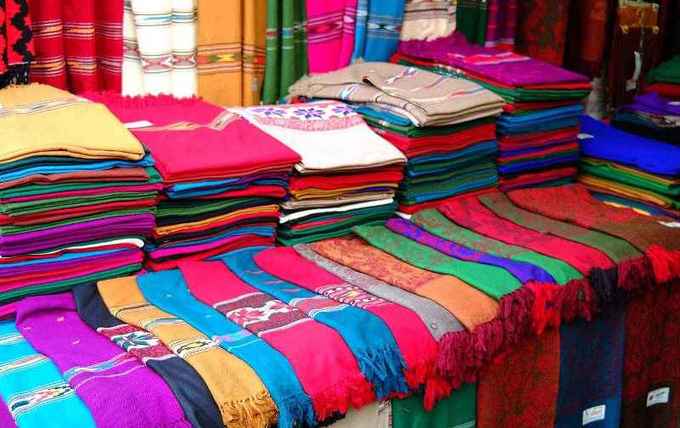
India has always been self-sufficient with textiles and is not dependant on imports. This is the only industry which has been posting growth graph year after year. However, textile industry is expected to grow well into the future, with improved bilateral relationships with countries that have been the biggest clients of India.
‘Needed’ items
Cost of credit is a major concern for the Indian textile industry. Subvention of interest will help the textile industry grow well into the future, without being plagued by contemporary problems. This should be continued for all textile export categories.
World share
Though India is self sufficient in textile industry, country’s share in the world market is a mere 4% compared to 35% of China. India needs to focus on scaling operations if this scenario has to change. It can be achieved only through investments in mega textile park, which can then be single point manufacturing and disbursing centres for export needs. This can also be a safe revenue model for the country’s textile needs too.
The country which is looking forward to seize opportunities on the worldstage by way of realizing its full potential, is waiting for the government to announce a slew of measures on part of the government to have the momentum set for the sector.
High expectations
MSMEs are hoping that they would be able to make some headway into the otherwise highly competitive markets, which are dominated by corporate houses. Anticipation is that the government doesn’t give in and make the situation worse for the sector which is already seeing red over the horizon.
Tight fiscal control and extremely low fiscal deficit, despite the situation where oil prices would fluctuate, is one of the expectations that seems to be playing on the minds of textile players.
Investment on exclusive technology
There are varied opinions on this front where technology plays a role in bringing down the manufacturing and operative costs. While one section would always argue that money saved is money earned, by way of adapting new technology; there is another section that believes technology alone cannot save textile industry without appropriate measure being taken in its favour.
An extension in the TUFS scheme – Technology Upgradation Fund Scheme – needs to have small, medium, heavy textile industries as well, to be able to meet the needs in a focused manner.
Technology being the second largest sector that has generated employment for people after agriculture in India, this surely holds more opportunities than what the industry is currently witnessing now. It is imperative to keep pace with the changing times and meet challenges right in their path, than having to scamper for direction later.
That Indian economy is growing is a fact and this needs to be acknowledged by way of bringing in positive changes in corresponding areas as well. Textile industry being old and new at the same time has a unique ability to adapt itself to changing circumstances. It is India’s winning horse, of all times.
(Image: exportimporttime.blogspot.com)